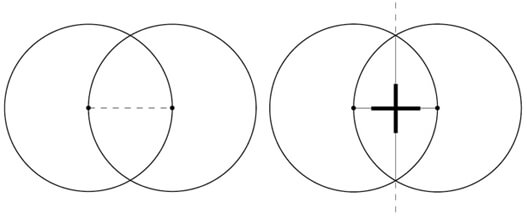- Oct 16, 2004
- 10,778
- 928
- Country
- United States
- Gender
- Male
- Faith
- Christian
- Marital Status
- Single
The question is whether determinisim or libertarianism harmonizes best with Scripture.Oh, he has a will alright. It is in bondage to sin, and independent of the Spirit it always resists the Spirit. But it sounds like you think this proves wrong those who say free will is not sovereign will. We are all in bondage, either to sin, or to Christ.
Frequently, Mark, you build your case on an inappropriate starting point, namely you typically start with the sinful nature, and then conclude that such a man is not terribly free. If we start from that point, I certainly agree with you that the conclusion is pretty reasonable and has considerable Scriptural support (although I linked you to a post demonstrating that it's a bit of an oversimplification). Therefore I don't spend much time debating you from that starting point because I can't decisively prove it to be a weak point in your position.
Rather I look to prior points - and to the system as a whole. It's a rather bizarre system. God is supposed to be infinitely good, and yet He intentionally lines up the dominoes in a way that pushes, say, 50% of 100 billion people into hell when He could just as easily have lined them up to push 100% into heaven. Or even He could have abstained from creating anything. Thus when Scripture teaches that He wants 100% to be saved, it seems to be absolutely LYING to us. Had He WANTED all men and angels to be in heaven, clearly He would have lined up the dominoes differently. Clearly, in your view, He WANTED an awful lot of people to goto hell. In my family we often say that actions speak louder than words. God did what He WANTED. In your view He achieved precisely the outcome that He WANTED - nothing more, nothing less.
And He has even His own Son suffering needlessly on the cross - easily preventable by a different domino-arrangement.
You have no proof that God is First Cause in a chain of causality. You're asking us to believe a COMPLETELY BIZARRE system without a shred of proof - a system that seems to self-contradict both our own hope and the basic goodness of God.
On such charges you've replied that God only contradicts MY definitions of virtue. But what else do I have to go on? If I can't find a set of words whose definitions are common to me and God, then effectively Scripture has no legitimate translation. It might as well be written in an angelic tongue that none of us understand - it's a useless document. I realize that we can make exegetical mistakes when trying to discern the definition of a given biblical term. But our only exegetical SIGNNPOST of such errors is apparent contradictions.
You choose to ignore these apparent contradictions. But in doing so - and again, I'm not talking with respect to your preferred starting point - it remains painfully obvious that libertarianism harmonizes with Scripture much better than determinism.
As for starting points, a theologian should be able to explain why Adam DESERVED to be punished. Determinism offers no hope in this regard. And while you might feel that libertarianism isn't 100% clear, at least it offers some EFFORT at, some PROSPECT of, resolving the contradictions.
Last edited:
Upvote
0


